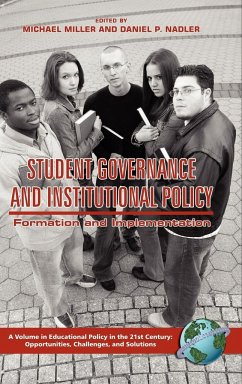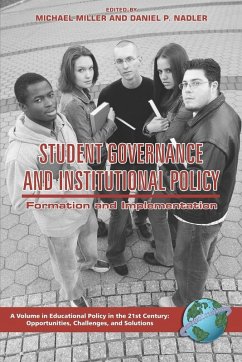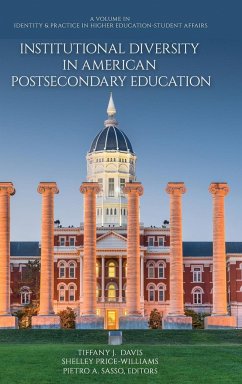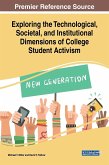Colleges and universities face a variety of challenges in meeting the needs of students, and one of the greatest is their ability to respond to student needs while protecting institutional and academic integrity. For those working with students, a primary example of this challenge is the involvement of students in shared decision-making, a process often developed and fostered through organizations such as student government. Few discussions have embraced the challenges of shared governance with students, particularly within the past two decades. This book arose from continuous conversations with college and university administrators and policy makers who struggle daily with the decision- making process and the role of student voices. The volume is also intended to be an extension of the Julie Caplow and Michael Miller volume on Policy and University Governance (2003) that looked at internal and external governance issues and their impact on institutional policy formation and decision-making. The collections of chapters included here provide a comprehensive view of student involvement in policy formation and decisionmaking. The volume begins with a general overview of the challenges associated with investing students with power, authored by Tulane University's Morolaké O. Laosebikan-Buggs. Michael Miller and Daniel Nadler then provide a rationale as to why students have been involved in shared decision-making in the past, outline the benefits and problems historically associated with student shared governance, and offer some meaningful recommendations for continuing to work with students.
Hinweis: Dieser Artikel kann nur an eine deutsche Lieferadresse ausgeliefert werden.
Hinweis: Dieser Artikel kann nur an eine deutsche Lieferadresse ausgeliefert werden.








